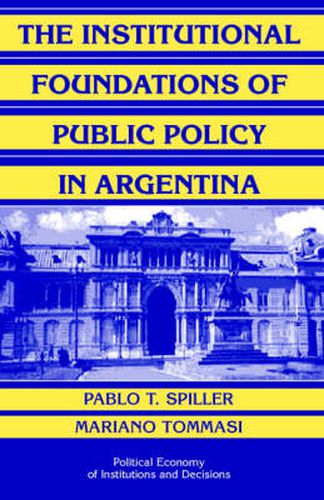Readings Newsletter
Become a Readings Member to make your shopping experience even easier.
Sign in or sign up for free!
You’re not far away from qualifying for FREE standard shipping within Australia
You’ve qualified for FREE standard shipping within Australia
The cart is loading…






This book develops a general model of public policymaking, focusing on the difficulties of securing intertemporal exchanges among politicians. By using this model the authors are able to derive a series of empirical propositions about the conditions under which policies are likely to be volatile, rigid, or high quality. In addition, the authors combine the tools of game theory with Williamson’s transaction cost theory, North’s institutional arguments, and contract theory, to provide a general theory of public policymaking in a comparative political economy setting. They also undertake a detailed study of Argentina, using statistical analyses on newly developed data to complement their nuanced account of institutions, rules, incentives and outcomes. Drawing on this research the book explores the reasons for Argentina’s seeming inability to design and implement high quality public policies over a sustained period of time.
$9.00 standard shipping within Australia
FREE standard shipping within Australia for orders over $100.00
Express & International shipping calculated at checkout
This book develops a general model of public policymaking, focusing on the difficulties of securing intertemporal exchanges among politicians. By using this model the authors are able to derive a series of empirical propositions about the conditions under which policies are likely to be volatile, rigid, or high quality. In addition, the authors combine the tools of game theory with Williamson’s transaction cost theory, North’s institutional arguments, and contract theory, to provide a general theory of public policymaking in a comparative political economy setting. They also undertake a detailed study of Argentina, using statistical analyses on newly developed data to complement their nuanced account of institutions, rules, incentives and outcomes. Drawing on this research the book explores the reasons for Argentina’s seeming inability to design and implement high quality public policies over a sustained period of time.